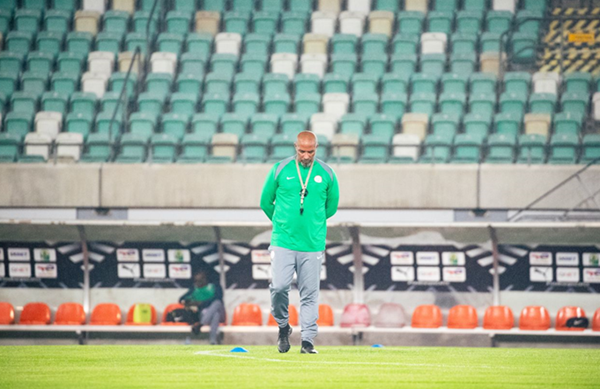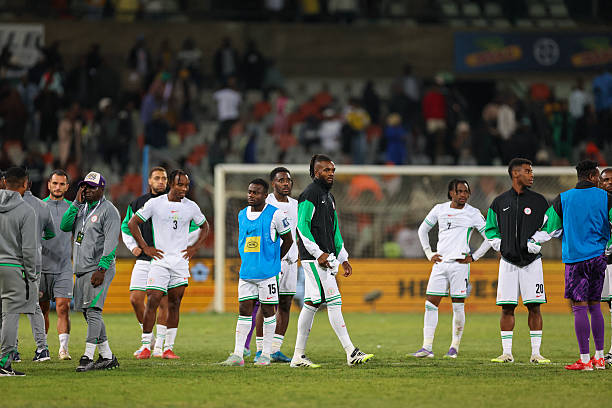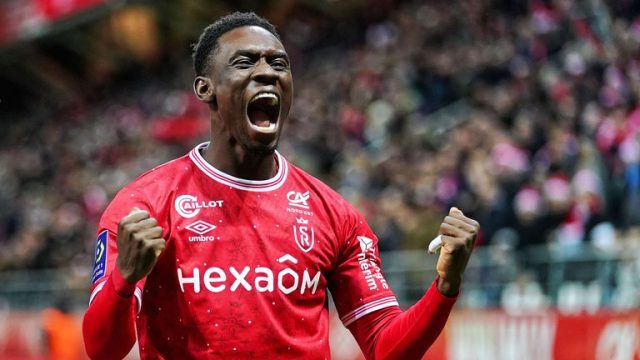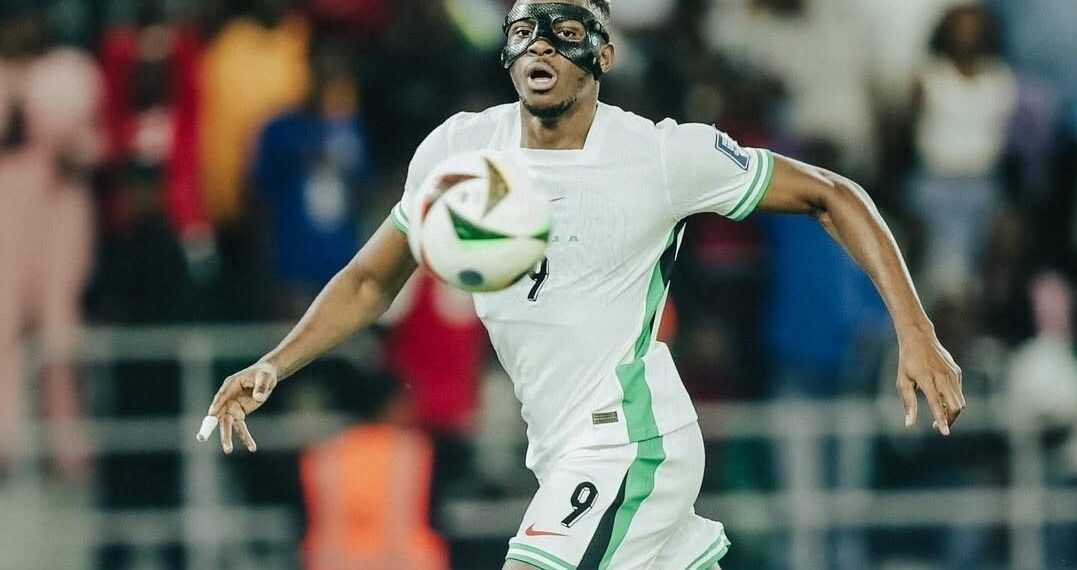As anticipation builds ahead of Nigeria’s crucial 2026 FIFA World Cup qualifier against Lesotho, concerns about the Super Eagles’ readiness have captured the attention of football fans across the nation. In a country where every major international match ignites passionate debate in viewing centers from Lagos to Enugu—and even sparks cross-border rivalry with Ghana and other West African neighbours—the stakes for World Cup qualification feel especially high.
Recently, former Super Eagles goalkeeper Idah Peterside openly discussed the squad’s current challenges, particularly focusing on issues in attack and consistency. Peterside, who guarded Nigeria’s goalposts in the 1990s, shared candid insights on a major sports radio program, stating, “The Lesotho game is the real problem because we don’t score goals, we don’t perform, and winning games has become a challenge.”
He drew a stark comparison to what the encounters used to be, admitting that while in the past Nigerians could expect a comfortable 3-0 win against the Crocodiles of Lesotho, that confidence has waned. “If this was before and we were playing Lesotho, we’d confidently predict a 3-0 win. But now, no one is sure. The confidence is gone, and everyone knows it,” he asserted.
Such candor has resonated with many fans, who have watched the Super Eagles struggle through a string of underwhelming-results. Recent statistics underline these concerns: Nigeria has managed just four goals in their last five competitive games, lagging behind group rivals and raising questions about tactical approaches and team morale.
Nigeria’s Challenging Road to World Cup Qualification
Looking at the broader qualifying picture, Peterside pointed out that Benin Republic and South Africa are now strong contenders to advance from Group C. “Benin have the best chance to qualify. If they and South Africa win their games, they’ll both be on 17 points,” he said during his interview. This sentiment is echoed by pundits across the continent, who see the Super Eagles’ fate hanging on a knife-edge.
Tactical missteps, lack of ruthlessness in front of goal, and defensive lapses have all contributed to Nigeria’s precarious standing. As Peterside explained, “If Benin can hold us or beat us, it won’t be a surprise. We’ve shown that we are beatable. If we don’t win against Lesotho, there’s nothing to play for next Tuesday because even if we beat Benin, we’ll only have 14 points.” According to local sports analysts, the situation has made the Lesotho match an absolute must-win for Nigeria if they have any hope of progressing.
In this high-pressure environment, strategies and tactics will be under close scrutiny by both the Nigeria Football Federation and millions of devoted supporters. There are also reports that the squad’s morale has been tested, with younger players feeling the weight of expectation and some veterans reportedly nursing minor injuries.
Hope Yin Balance: The Dream of World Cup Glory
Despite the wave of concern, Peterside maintains a sense of optimism that resonates with the fighting spirit for which Nigerians are known. He said, “Nigeria doesn’t carry last. No matter who we face, we will win by God’s grace. I have a strong feeling we’ll win.” This reflects a broader local sentiment, where faith and fortitude are often seen as critical ingredients to success in both sports and life.
Fans in bustling urban centers and grassroots communities alike are rallying behind the team, with local businesses and football academies organizing viewing parties and sending well-wishes on social media. As one Lagos-based supporter, Tunde Adeyemi, told our correspondent, “No matter how tough it seems, we go still support our boys—na our pride!” This groundswell of national support demonstrates the deep connection between football and Nigerian identity.
Spotlight on Coach Eric Chelle: Time for Patience?
Discussions around the coaching situation have also intensified, with head coach Eric Chelle coming under the microscope as the team navigates this turbulent phase. Peterside weighed in on the issue, urging patience and understanding from both fans and officials.

“Football is very emotional. If you don’t win, people will shout. But let’s leave Eric Chelle until after the Africa Cup of Nations,” he suggested. According to him, a coach’s legacy should be evaluated not just on short-term results but on the foundation they lay for future success. “At least he must get to the semi-finals. Building a team isn’t easy; it takes time and patience,” Peterside emphasized, aligning with some Nigerian football veterans who argue for continuity and long-term planning over snap judgments.
He further noted, “If he doesn’t qualify for the World Cup but performs well at AFCON, then he deserves a chance to continue.” This nuanced perspective acknowledges the intense pressure that comes with leading the Super Eagles yet encourages a process-driven assessment over immediate results.
Local and Regional Perspectives
Discussions over Nigeria’s World Cup hopes aren’t limited to the country’s borders. In Ghana, Cote d’Ivoire, and other West African countries where football fever runs high, the fortunes of the Super Eagles are closely followed. For many, Nigeria’s progress—or stumbling—serves as a signal of regional football prowess.
Samuel Obeng, a Ghanaian football analyst, commented via Joy Sports, “A strong Nigerian side lifts the profile of West African football in global eyes. Every time Nigeria, Ghana, or Senegal reach the World Cup, it inspires the region’s youth to dream bigger.” Thus, the high stakes of the Lesotho match carry implications not just for Nigerians, but for aspiring footballers and fans across Africa.
Looking Back: Nigeria’s Changing World Cup Fortunes
Nigeria’s football journey offers plenty of lessons. Since making their World Cup debut in 1994, the Super Eagles have become a symbol of African excellence on the world stage, reaching the knockout round on multiple occasions and producing such stars as Jay-Jay Okocha, Kanu Nwankwo, Mikel Obi, and Vincent Enyeama. However, recent years have placed the team in a period of transition, with generational shifts, tactical experiments, and off-pitch controversies testing the squad.
Peterside himself experienced the highs and lows of national service. With two caps for the Super Eagles and a notable club career with Moroka Swallows F.C. and Enyimba, he knows first-hand the pressure that comes with representing Nigeria on the international scene. His views, shaped by both international exposure and local realities, resonate deeply among both aspiring athletes and football administrators.
What the Road Ahead Holds for Nigerian Football
As the Super Eagles face Lesotho in this pivotal match, a path to redemption—and qualification—lies in their hands. The outcome will reflect not just technical ability and tactical astuteness, but also determination, unity, and the enduring belief that defines Nigerian sport.
Whatever the final whistle brings, one thing is certain: Nigerians at home and abroad will watch, analyze, and passionately debate each moment. For many, the journey itself—the triumphs, heartbreaks, and hope—is what keeps them glued to their screens, proud Africans ready to cheer again.
How confident are you in the Super Eagles’ chances against Lesotho and in their quest for World Cup qualification? Share your thoughts and predictions in the comments, and join the conversation with football fans across Nigeria, West Africa, and the world.










